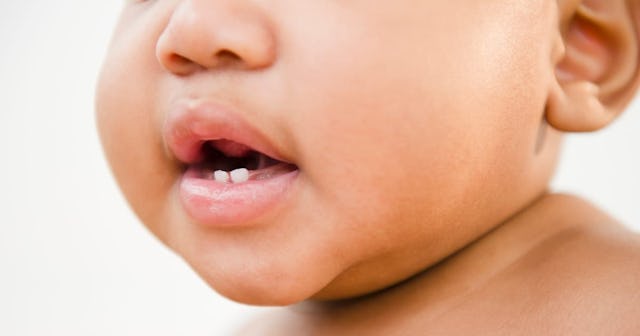Your 26 Week Old Baby's Development And Milestones

You officially have a 26 week old baby!
Peek-a-Boo… Times a Million
Now that she’s well into the seventh month, you’ve probably noticed that your baby has a penchant for all things peek-a-boo and pat-a-cake, and maybe even hide-and-seek as well (might want to check her playpen for those missing keys, mama). It’s also around this time that she has fully developed what’s known as “object permanence,” or the understanding that when things go away, they aren’t gone for good, something that games such as peek-a-boo help to reinforce.
Your 26 Week Old Baby’s Physical, Social, And Cognitive Milestones
These baby classics aren’t the only games she’s interested in, though. Besides sucking every last bit of energy out of your tired and weary soul, baby is also a natural at things like throwing a ball or the ever-so-fun game of tossing things off her high chair and delighting in you picking them back up — repeatedly. As annoying as that can be, don’t wish away these moments just yet. They really are the things you’ll look back on with fondness.
Along with her newfound love of games comes her need to show them off to people in public. Just remember that babies, even at this age, are still more susceptible to illness and infection than other children and adults. While it’s good to encourage baby’s social interaction, it’s also good to remind strangers to keep their hands and mouths off your baby — babies are kissing and manhandling magnets, and some people simply can’t help themselves. Don’t feel the least bit bad about telling them to back the hell off, buttercup.
Your 26 Week Old Baby’s Development & Growth Milestones
With your seven month old getting used to eating solids on a regular basis, now is the perfect time to introduce more complex foods than just single-grain cereals and purées. Try mashed fruits and vegetables like sweet potato to introduce new flavors and textures to your baby. Make sure she still gets about 4 tablespoons of iron-fortified cereals each day.
When introducing new foods, it’s imperative you do so one food at a time and watch for symptoms of a possible allergy. Signs like a rash, diarrhea, vomiting, and difficulty breathing. Contact your baby’s health care provider immediately if you notice any of these.
Tooth, there it is!
If your baby is a lean, mean, drooling machine, is biting all the time, and can’t seem to keep her hands out of her mouth, then you have a teething tot on your hands. But you probably already know that with all the fussiness, tapered appetite, and middle-of-the-night sobs you’re probably been calming. Most babies begin to teeth hardcore between 6 and 12 months, but some start earlier or later, so no worries if yours hasn’t shown these symptoms yet.
RELATED: Simple Ways To Treat Baby Drool Rash At Home
The bottom two teeth should appear first, with the top two teeth not far behind. Keep them clean by brushing gently with a baby toothbrush.
This article was originally published on